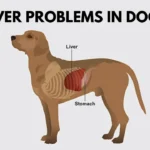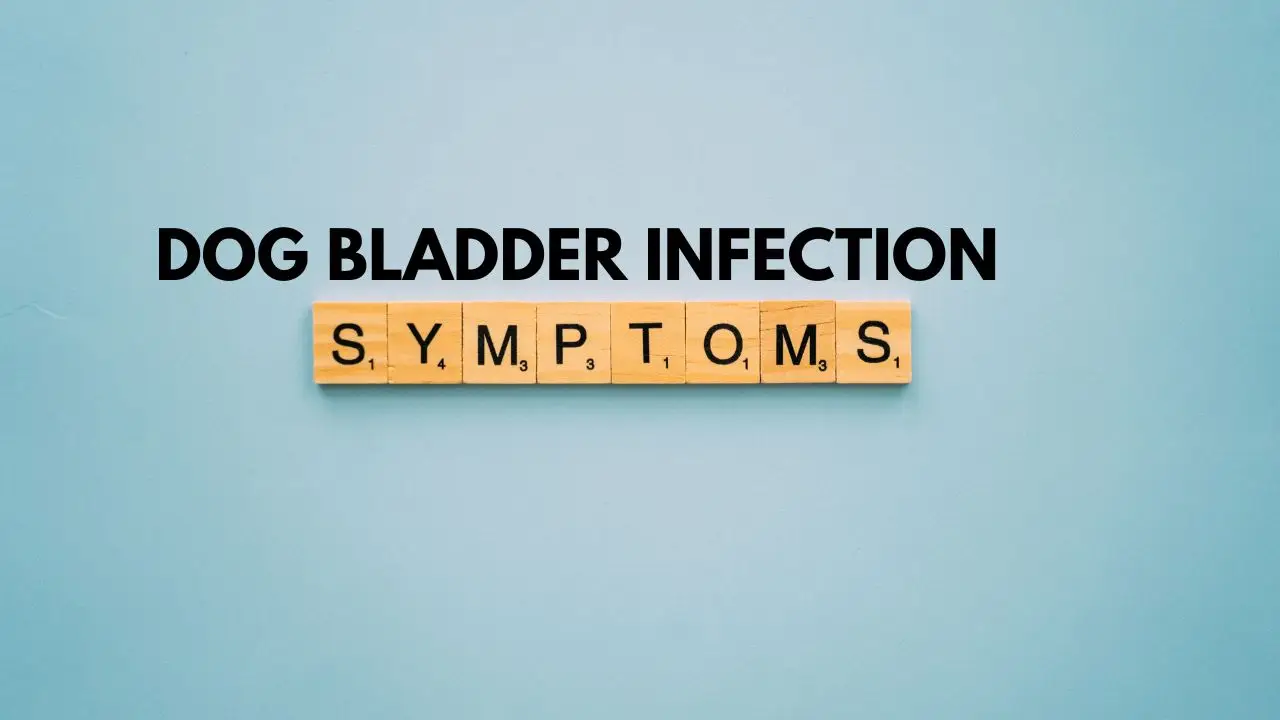In today’s fast-paced world, our furry friends often rely on us to make the best decisions for their health and happiness. One way to ensure your pup is living their best life is by implementing a wellness plan tailored specifically for dogs. This comprehensive guide will introduce you to the concept of wellness plans for dogs, highlight their benefits, and provide actionable steps to create a plan that fits your pet’s unique needs.
Read More. Food Substitutes for Rice
Why Wellness Plans Matter for Dogs
Wellness plans for dogs are essential because they provide a structured approach to maintaining your pet’s health. Just like humans, dogs require regular check-ups, vaccinations, and a balanced diet to stay healthy. A well-thought-out wellness plan can help prevent serious health issues, saving you money in the long run and ensuring your dog leads a happy, active life.
Understanding the Basics of Wellness Plans for Dogs
A wellness plan is essentially a proactive health strategy for your dog. It serves as a comprehensive roadmap covering various aspects of your dog’s healthcare needs. Typically, a wellness plan includes:
- Regular Veterinary Check-Ups: Routine visits to the vet are crucial for early detection of potential health issues. These check-ups allow veterinarians to assess your dog’s overall health, monitor weight, and check for any unusual symptoms. Regular visits can also help maintain a baseline for what’s normal for your dog, making it easier to detect changes over time.
- Vaccinations: Vaccinations play a critical role in preventing a range of potentially fatal diseases such as rabies, distemper, parvovirus, and more. Keeping your dog’s vaccinations up-to-date is a vital part of disease prevention and community health.
- Dental Care: Good dental hygiene is often overlooked but is a significant aspect of overall health. Regular dental check-ups and cleanings help prevent periodontal disease, which can lead to more serious conditions such as heart disease. Incorporating dental care into your wellness plan can add years to your dog’s life.
- Parasite Prevention: Fleas, ticks, and worms are not just nuisances; they can transmit serious diseases and compromise your dog’s health. A wellness plan includes preventive measures and treatments to protect your dog from these unwanted pests.
- Nutritional Guidance: Diet plays a pivotal role in your dog’s health. Nutritional needs can vary greatly depending on breed, age, and health condition. A wellness plan should include a tailored diet that meets all nutritional requirements, helping maintain a healthy weight and energy level.
Creating a Personalized Wellness Plan
To create an effective wellness plan for your dog, consider the following tips:
- Consult Your Veterinarian: Work with your vet to develop a customized plan based on your dog’s specific needs. They can provide insights into the best practices for your dog’s breed and life stage.
- Consider Life Stages: Puppies, adults, and senior dogs have different health needs. Ensure your wellness plan evolves with your dog’s age.
- Monitor and Adjust: Keep track of your dog’s health and behavior. Regularly update the plan to include new treatments, dietary adjustments, or additional preventive measures as needed.
- Budget for Wellness: While there is an upfront cost to implementing a wellness plan, the long-term savings in terms of preventing serious health issues can be significant.
Long-Term Benefits of a Comprehensive Wellness Plan
Implementing a comprehensive wellness plan can have profound long-term benefits:
- Prevention of Serious Health Issues: Early detection and prevention are key components of a wellness plan, helping to avoid significant health problems before they arise.
- Cost Savings: While there are costs associated with regular check-ups and preventive care, these are often far less than the costs of treating serious illnesses or emergencies.
- Improved Quality of Life: Dogs on wellness plans tend to have better overall health, resulting in a more active and fulfilling life.
- Peace of Mind: Knowing that you are taking proactive steps to ensure your dog’s health can provide considerable peace of mind.
The Benefits of Implementing a Wellness Plan
Creating a wellness plan for your dog is a proactive step towards ensuring their long-term health and happiness. These plans are designed to provide comprehensive care through regular veterinary visits, consistent health maintenance, and financial savings, among other benefits. Here’s a closer look at how they work:
Early Detection of Health Issues
One of the most significant advantages of a wellness plan is the early detection of potential health problems. Regular veterinary check-ups are integral components of these plans. During these visits, veterinarians can perform routine examinations, run diagnostic tests, and monitor your dog’s health over time. This proactive approach allows any signs of illness to be identified and treated early before they develop into more serious conditions. Early intervention often leads to better treatment outcomes and can prevent unnecessary suffering for your pet.
Consistent Care and Health Maintenance
Wellness plans ensure that your dog receives consistent and comprehensive care. This consistency is crucial in maintaining your dog’s overall health, as it reduces the risk of missed vaccinations or treatments. By adhering to a structured schedule, your dog benefits from timely vaccinations, regular dental care, and preventive treatments for parasites. This systematic approach helps avoid gaps in care that could potentially lead to health complications. Moreover, these plans can be customized to fit the specific needs of different breeds and life stages, ensuring that your pet receives the most appropriate care.
Financial Benefits and Cost-Effectiveness
Another compelling aspect of wellness plans is their financial benefit. Many wellness plans offer discounts on veterinary services, which can be a cost-effective solution for managing your dog’s healthcare expenses. By paying a set fee for a wellness plan, you can often cover routine exams, vaccinations, and preventive care at a lower cost than paying for each service individually. This financial predictability can ease the burden on your wallet while still providing your dog with high-quality care.
Peace of Mind
Knowing that your dog is receiving the best possible care brings considerable peace of mind. A wellness plan provides a clear and structured approach to your pet’s health, allowing you to rest assured that all necessary precautions are being taken to keep your dog healthy. This assurance is invaluable for pet owners, who can focus on enjoying their time with their furry companions without constantly worrying about their health.
Tailored Care for Different Breeds and Life Stages
Wellness plans can be tailored to accommodate the unique needs of different breeds and life stages. Puppies, adults, and senior dogs all have varying health requirements, and a one-size-fits-all approach is rarely effective. Tailoring a wellness plan ensures that your dog receives the appropriate diet, exercise, and medical care suited to their specific needs, enhancing their quality of life at every stage.
Choosing the Right Veterinarian for Your Wellness Plan
Selecting the right veterinarian is crucial for the success of your dog’s wellness plan. Look for a vet who is experienced, approachable, and has a genuine love for animals. It’s also a good idea to choose a vet clinic that offers a range of services, from routine check-ups to emergency care. Building a good relationship with your vet ensures that your dog receives the best possible care.
Regular Veterinary Check-ups and Their Importance
Regular veterinary check-ups are a fundamental component of any comprehensive wellness plan for dogs, acting as a proactive measure to ensure long-term health and well-being. These visits are crucial for monitoring your dog’s overall health, administering necessary vaccinations, and addressing any health concerns that may arise.
Monitoring Overall Health
Veterinary check-ups provide an opportunity for a thorough assessment of your dog’s health. During these visits, veterinarians conduct physical exams, evaluate vital signs, and may perform diagnostic tests to ensure your dog is in optimal condition. These exams help in tracking your dog’s weight, dental health, skin condition, and more, offering a complete picture of their well-being. Regular monitoring allows for the detection of subtle changes in your dog’s health that might otherwise go unnoticed, ensuring that any potential issues are identified and managed promptly.
The Role of Vaccinations
Vaccinations are a critical aspect of protecting your dog against various infectious diseases. During routine check-ups, your vet will update your dog’s vaccination schedule, ensuring they are safeguarded against diseases like rabies, distemper, parvovirus, and more. Keeping vaccinations up to date is essential in preventing outbreaks of these diseases and maintaining both your pet’s health and public health safety.
Addressing Health Concerns
Regular vet visits also provide an invaluable opportunity to discuss any health concerns or behavioral changes you’ve noticed in your dog. Whether it’s a change in appetite, unusual behavior, or apparent discomfort, your vet can offer insights and suggest tests or treatments if necessary. Early intervention is key to resolving health issues before they become severe, making these visits a critical aspect of your dog’s healthcare routine.
Recommended Frequency of Visits
The frequency of veterinary visits should be tailored to your dog’s life stage and individual health needs:
- Puppies: Young dogs require frequent visits during their first year for vaccinations, deworming, and monitoring development. Typically, puppies should see the vet every 3-4 weeks until they are about 16 weeks old.
- Adult Dogs: Healthy adult dogs usually need an annual check-up. These visits help maintain vaccinations, assess dental health, and catch early signs of potential health issues.
- Senior Dogs: As dogs age, they may develop age-related health concerns, necessitating more frequent visits, often every 6 months. Regular check-ups can help manage chronic conditions and ensure a good quality of life in their senior years.
Benefits of Early Detection
One of the greatest advantages of regular veterinary check-ups is the early detection of health issues. Identifying problems in their initial stages often means simpler, more effective treatments and better outcomes. Early intervention not only prevents the progression of diseases but also mitigates the potential for more serious health complications, ultimately enhancing your dog’s quality of life.
Essential Vaccinations for Your Dog’s Health
Vaccinations are a critical component of wellness plans for dogs. They protect your pet from various diseases, some of which can be life-threatening. Common vaccinations include those for rabies, distemper, parvovirus, and adenovirus. Your vet will recommend a vaccination schedule tailored to your dog’s age, breed, and lifestyle. Keeping up with these vaccinations ensures that your dog remains protected against common illnesses.
Dental Care: A Key Aspect of Wellness Plans
Dental health is often overlooked but is a crucial part of your dog’s overall well-being. Regular dental check-ups and cleanings can prevent dental diseases, which can lead to more severe health issues if left untreated. Incorporate daily or weekly teeth brushing into your dog’s routine and provide dental treats to keep their teeth healthy. Remember, a healthy mouth contributes to a healthy body.
Parasite Prevention and Control
Parasites like fleas, ticks, and worms can cause significant discomfort and health issues for your dog. A wellness plan should include regular parasite prevention and control measures. This might involve monthly treatments, regular deworming, and checking for ticks after outdoor activities. Keeping parasites at bay ensures that your dog remains healthy and comfortable.
Nutritional Guidance for a Balanced Diet
Nutrition is a cornerstone of your dog’s health, affecting everything from their energy levels to their longevity. A well-structured wellness plan should prioritize dietary needs, ensuring your dog receives a balanced diet rich in essential nutrients. This tailored nutrition supports growth, vitality, and overall well-being, contributing to a long, healthy life.
Supporting Growth and Energy
A balanced diet provides the building blocks necessary for your dog’s growth and development. Proteins are crucial for building and repairing tissues, while fats offer a concentrated source of energy, supporting an active lifestyle. Carbohydrates provide additional energy and are vital for a well-functioning digestive system. These components work together to ensure your dog has the energy they need for daily activities and the nutrients required for healthy growth.
Tailoring Nutrition to Age, Breed, and Activity Level
Just as no two dogs are the same, their nutritional needs differ based on age, breed, and activity level. Puppies, with their rapid growth and high energy demands, require a diet rich in proteins and fats to support their development. Adult dogs need a balanced intake to maintain their energy levels and health, while senior dogs may require fewer calories but more fiber and certain nutrients to support aging joints and organs.
Breed-specific needs also play a role in dietary planning. Larger breeds might need more calcium for bone health, while smaller breeds could require calorie-dense foods to match their metabolism. Furthermore, active dogs, such as working breeds, may need more protein and fat to sustain their energy levels, unlike less active pets that might benefit from a controlled diet to maintain a healthy weight.
The Role of Your Veterinarian
Your vet plays a crucial role in crafting a personalized nutrition plan. They can assess your dog’s specific needs and recommend the best dietary options. Regular consultations can help adjust the diet as your dog grows or as their activity levels change. These adjustments ensure that your dog continues to receive the optimal balance of nutrients throughout their life stages.
Key Components of a Balanced Diet
A balanced canine diet includes:
- Proteins: Essential for muscle development and repair.
- Fats: Provide energy and support cell function.
- Carbohydrates: Offer energy and are important for gut health.
- Vitamins and Minerals: Support various biochemical functions and overall health.
It’s important to regularly review and adjust your dog’s diet to ensure they are receiving appropriate nutrients. Changes in weight, health conditions, or lifestyle may necessitate dietary adjustments to maintain optimal health.
Regular Review and Adjustment
As your dog ages, their dietary needs will evolve. Regular check-ups with your vet ensure that any necessary changes to their diet are made promptly. This proactive approach helps prevent nutritional deficiencies or excesses, which can lead to health issues.
The Role of Exercise in Your Dog’s Wellness Plan
Exercise is not just about physical health; it’s also crucial for your dog’s mental well-being. Regular physical activity helps maintain a healthy weight, reduces the risk of chronic diseases, and keeps your dog mentally stimulated. Tailor the exercise routine to your dog’s breed, age, and health status. Activities like walks, playtime, and agility training can be great ways to keep your dog active and happy.
Mental Stimulation and Enrichment Activities
Mental stimulation is an often-overlooked aspect of a wellness plan. Dogs need mental challenges to stay sharp and avoid behavioral issues. Incorporate enrichment activities like puzzle toys, training sessions, and socialization with other dogs. These activities keep your dog engaged and can prevent boredom-related behaviors such as chewing and barking.
Monitoring and Adjusting Your Dog’s Wellness Plan
A wellness plan is not static; it should evolve as your dog’s needs change. Regularly monitor your dog’s health and behavior and adjust the plan accordingly. This might involve changing their diet, increasing exercise, or adding new enrichment activities. Stay in close communication with your vet to ensure that your wellness plan continues to meet your dog’s needs.
Common Mistakes to Avoid in Wellness Plans
Avoiding common mistakes can make your wellness plan more effective. One common mistake is neglecting dental care, which can lead to severe health issues. Another is failing to stick to a regular vet visit schedule. Consistency is key to catching health issues early. Lastly, not providing enough mental stimulation can lead to behavioral problems. Ensure your wellness plan is comprehensive and consistent.
Success Stories from Dog Owners
Hearing from other dog owners can provide inspiration and practical tips for your wellness plan. Many pet owners have seen significant improvements in their dog’s health and behavior after implementing a wellness plan. These stories highlight the importance of a proactive approach to pet health and can motivate you to stick with your plan.
Final Thoughts on Wellness Plans for Dogs
Creating a wellness plan for your dog is one of the best investments you can make in their health and happiness. It ensures that your dog receives consistent, comprehensive care and helps prevent serious health issues. By following the steps outlined in this guide, you can create a wellness plan tailored to your dog’s unique needs. Don’t forget to consult with your vet and adjust the plan as needed to keep your furry friend in peak condition.










